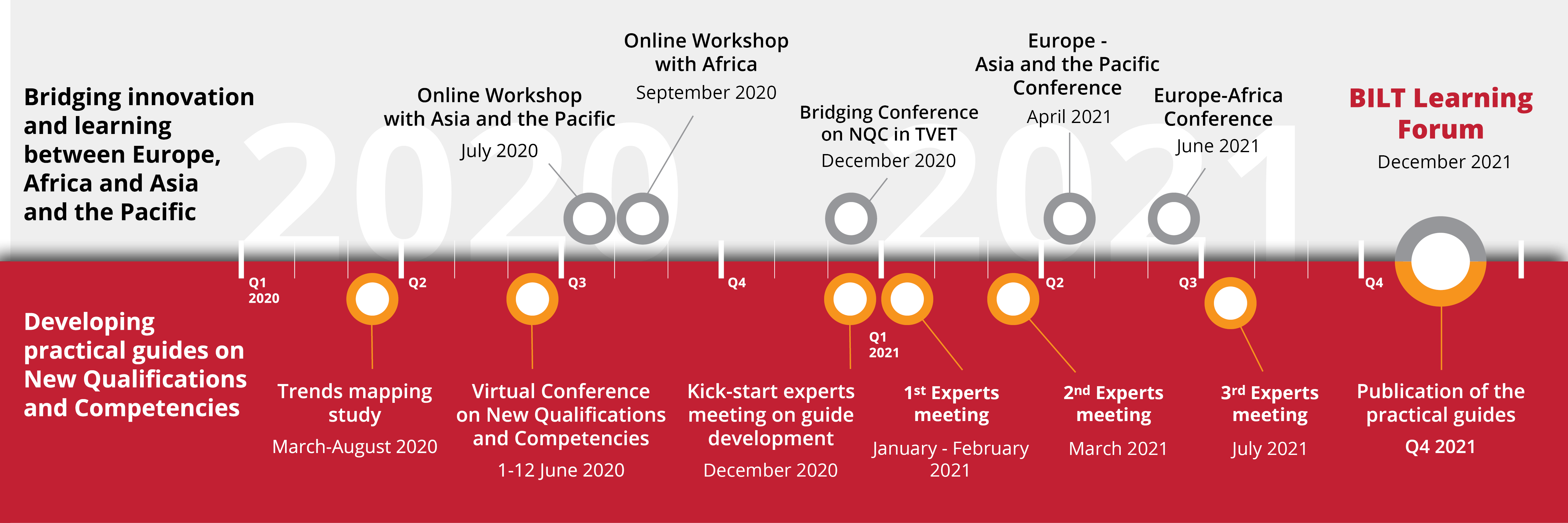About BILT: Our approach | Themes | Who we are
Get involved: News and events | BILT community | Expert group | Self-Reflection Tool
Knowledge base: Innovative and promising practices | Atlas of emerging trends | BILT library | TVETipedia
The Bridging Innovation and Learning in TVET (BILT) project supports TVET stakeholders to address current challenges in TVET systems, which arise due to technological, social, environmental, and workplace changes. BILT leverages the existing mechanism of the UNEVOC Network to offer opportunities for collaboration and peer learning between Europe, Africa, and Asia and the Pacific. The project complements national developments to explore and support innovative, market-oriented and attractive modes of learning and cooperation in TVET.
Through its activities, the BILT project puts UNESCO’s TVET strategy![]() into practice, particularly by supporting two of its cross-cutting intervention areas:
into practice, particularly by supporting two of its cross-cutting intervention areas:
‘New qualifications and competencies’ is the overarching theme of the BILT project. The project provides a platform to explore the process of identifying new qualifications and competencies in a timely and accurate manner, integrating them into appealing and flexible curricula and training regulations and implementing them in innovative training approaches, also called the three I’s process.
The overarching theme is supported by four focus themes: ‘Digitalization’, ‘Greening’, ‘Entrepreneurship’, and ‘Migration’ in the context of TVET.
First, the BILT bridging events bring together TVET stakeholders from Africa, Asia and the Pacific, and Europe. They are unique meeting points, where the main trends related to the 3 I’s and the BILT themes are discussed and insights on their implementation are shared. The events aim to encourage an ongoing exchange among TVET stakeholders and to strengthen peer learning in the TVET community.
Second, the TVET community has already benefited from a series of project outputs, such as a trends mapping study, the publication of innovation and learning practices, and the work of the BILT expert group. They are laying the foundation for the development of an 'Organization Self-Reflection Tool' and further capacity building activities.

Third, the next biennium (2022-2023) will incorporate a new line of work into the BILT project activities. Focusing on capacity development of TVET institutions, it will allow TVET providers to gauge their preparedness to contribute to the three I’s process. In a subsequent phase, the methodology will be disseminated at the regional level by institutions participating in the pilot phase.
The BILT project is implemented by
with support of
and sponsored by